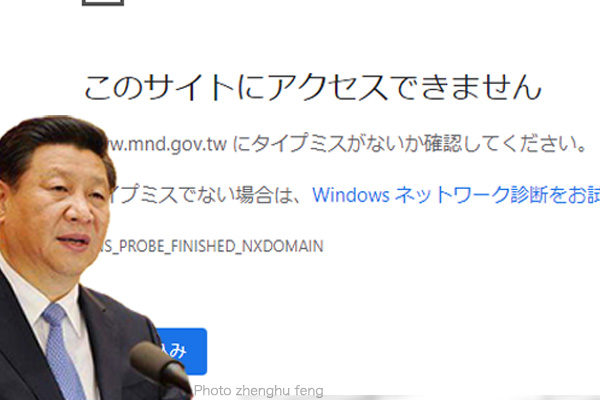While conducting military drills to intimidate Taiwan in response to U.S. House Speaker Nancy Pelosi’s visit to Taiwan on August 2-3, China simultaneously engaged in non-military offenses that should attract attention. Japan needs to accelerate preparation for “hybrid warfare” combining military and non-military means compositely.
On the night of August 2, Chinese state-run media reported that Su-35 fighter aircraft of the People’s Liberation Army (PLA) Air Force crossed the Taiwan Strait. But the Taiwanese Defense Ministry denied the report as not true. A “cognitive warfare” to spread disinformation to terrify enemy people and confuse their society is a Chinese common practice. Authorities must counter disinformation by opening facts in a timely manner. But the Taiwanese Defense Ministry’s official website remained down from the early morning to night on August 4 due to cyberattacks.
Prior coordination required on intelligence disclosure
On the occasion of Russia’s invasion of Ukraine, the United States and United Kingdom proactively opened intelligence they collected to deny Russian disinformation. But the disclosure of intelligence is accompanied by demerits.
When a Korean Airlines (KAL) flight was shot down by a Soviet Air Force fighter in 1983, the Soviet Union at first provided disinformation, denying its involvement in the incident. Then, the Japanese government provided the Signal Intelligence (SIGINT) of communications between the Soviet fighter and a ground station intercepted by a Self-Defense Forces’ SIGINT site in Wakkanai, northern Hokkaido, to the U.S. government for opening at the United Nations Security Council. Consequently, Soviet Foreign Minister Andrei Gromyko had to admit Soviet fighters’ shootdown of the KAL flight.
After the incident, however, the Soviet Union took countermeasures including to encode communications, causing the Wakkanai site, which now belongs to the Defense Intelligence Headquarters of the Defense Ministry, unable to intercept Soviet military communications.
The government and intelligence agencies need to coordinate in advance which intelligence and to what extent the government can disclose. In order to provide proper intelligence in a timely manner after an incident occurred, the government must always conduct simulations.
Also, Japan cannot respond to enemy cyberattacks with the government’s basic policy of “exclusive defense.” Unless cyber attackers’ attributions are identified beforehand, Japan will be unable to blame countries that launched cyberattacks. Unless cyberattacks against enemies are allowed, deterring enemy cyberattacks will be impossible.
Citizen detention and trade restrictions
On August 3, Chinese state security authorities detained a Taiwanese man in the coastal province of Zhejiang. When Japan detained the skipper of a Chinese fishing boat that rammed a Japan Coast Guard ship in 2010, China seized four Japanese employees of constructor Fujita Corp working in China.
China also restricted rare earth exports to Japan at the time. This time, China suspended citrus imports from Taiwan and natural sand exports to Taiwan. “Work together” with China as proposed by many China scholars, politicians and business leaders will provide China with more opportunities to use as Chinese leverage.
Fumio Ota is a councilor and a Planning Committee member at the Japan Institute for National Fundamentals. He is a retired Vice Admiral of Japan Maritime Self-Defense Force.


